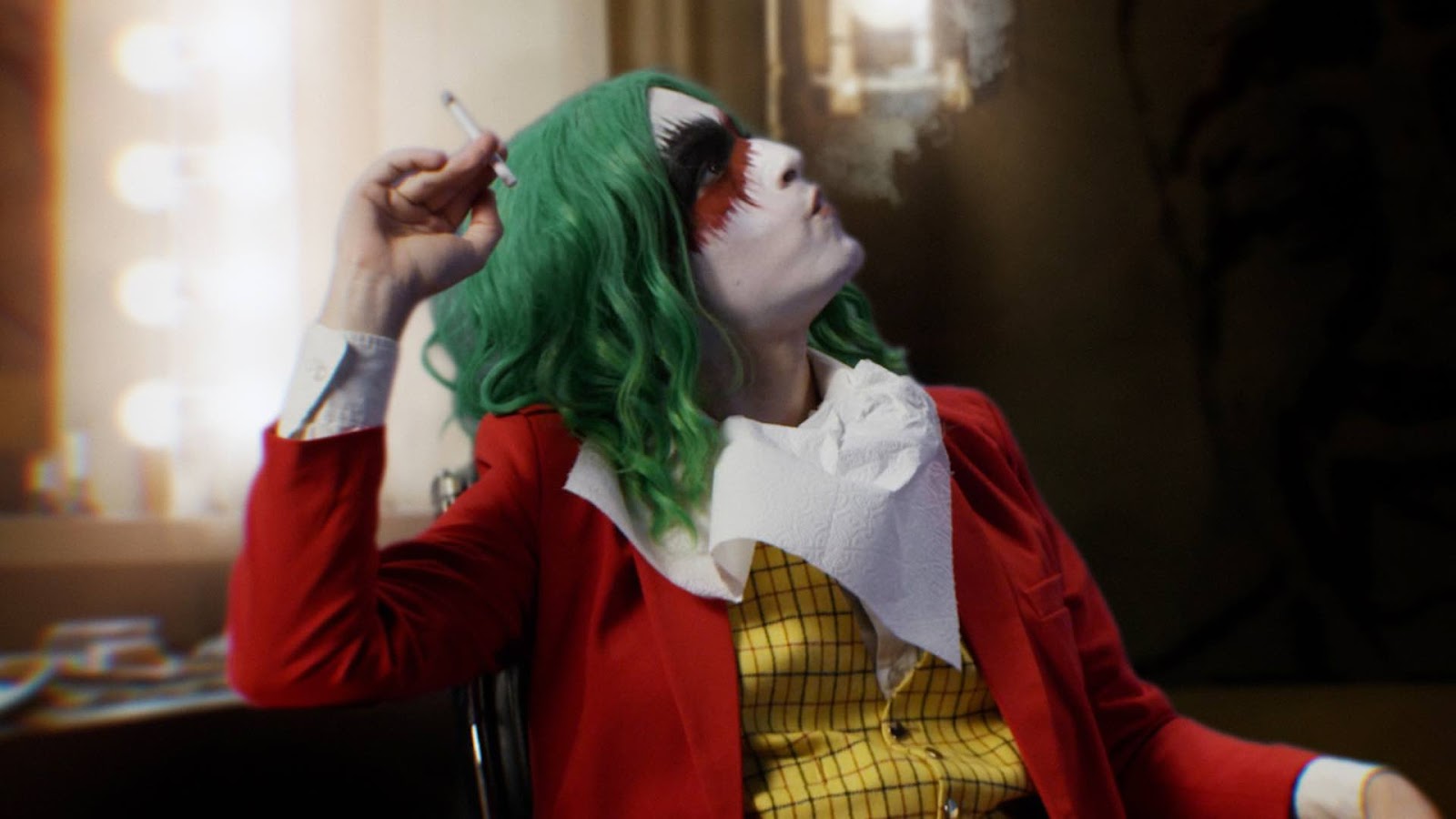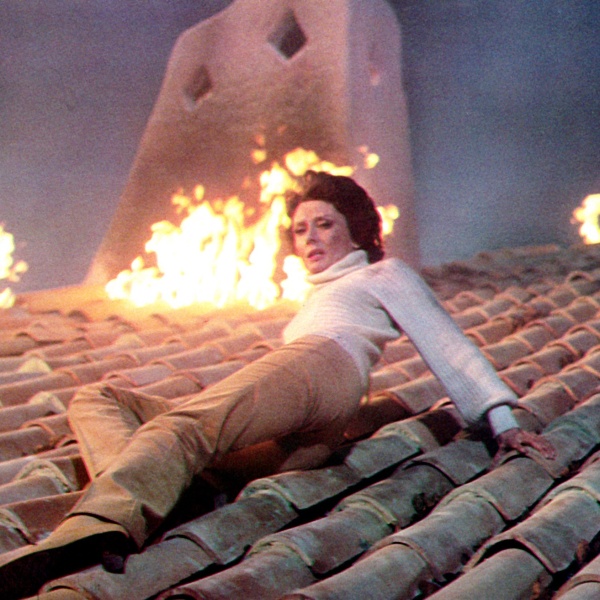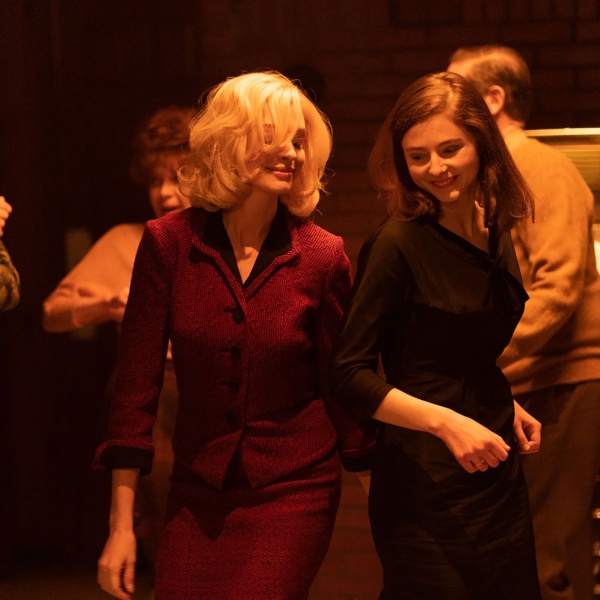“The People’s Joker” isn’t going to end the 2010s superhero boom all by itself. Other factors are contributing to the decline: “Madame Web” flopped. “The Marvels” and “Aquaman and the Last Kingdom”barely made a ripple. And the simple fact that stars like Dakota Johnson and Kristen Stewart feel free to shit on the superhero-industrial complex — in Johnson’s case, from the inside — without fearing for their careers is a sign that Marvel and DC don’t have the stranglehold on the film industry they did only a few years ago. But Vera Drew’s “queer coming-of-age fair use superhero world parody” might just be the killing blow.
Disney and Warner Bros. have built multi-billion-dollar empires on encouraging viewers to make fandom an intrinsic part of their identity. Some are straightforward peans to fandom as community, or even as family — found or otherwise. But after the commercial and critical success of “Black Panther” in 2018, Disney especially started ramping up its efforts to leverage representation politics as a marketing strategy. For the LGBTQ+ community, these efforts have been underwhelming: The “exclusively gay moment” in the live-action “Beauty and the Beast.” A brief appearance from a cyclops who is also a lesbian cop in “Onward.” (That one tried to thread the needle by saying she was Disney’s first “openly” LGBTQ+ character.)
The MCU had one of these moments, which took up 40 seconds of the 181-minute “Avengers: Endgame.” So did the DCEU, via a brief visual gag in the animated opening of “Birds of Prey.” This is where Drew’s “The People’s Joker,” which she withdrew from the 2022 Toronto International Film Festival over a rights controversy and which was definitely not authorized by DC or Warner Bros., calls the studio’s bluff. If Warner Bros. is so committed to being inclusive, then a movie featuring multiple trans characters set within the world of Batman comics should be, to use Twitter jargon from five years ago, a “representation win.” But how good can the representation in superhero cinema really be if the filmmaker had to go out and make that movie on her own?
When “The People’s Joker” first exploded onto the scene after its debut at the 2022 Toronto International Film Festival, some — including this writer — interpreted the movie as a confrontational middle finger to the very idea of corporate IP, and one designed to test the limits of fair use. (The film’s creators maintain that their work is parody, and therefore protected by the First Amendment.) But as Drew began giving more interviews talking about the influences behind the film, her genuine affection for the material became clear.
She might be, in her own words, “irony poisoned,” but she’s fluent inBatman comics. (Alan Moore’s 1988 graphic novel “The Killing Joke” is especially relevant to Drew’s version of Joker’s origin story.) She makes impassioned arguments in favor of Todd Phillips’ “Joker.” Seeing “Batman Forever” in the cinema was a formative experience in her life. Her film has deep-cut references to minor Batman villains like Mister Mxyzptlk, imagined here as a fairy-godmother type who allows Drew’s Joker to come to terms with her childhood.
With “The People’s Joker,” director Vera Drew is doing the exact thing that studios have been asking superhero fans to do for years: She’s telling her life story through the medium of Batman characters, identifying with these characters and intertwining them with the deepest, most vulnerable parts of herself. In Drew’s film, becoming a woman has the same freeing effect as becoming the Joker has on Arthur Fleck. (She’s less antisocial about it, however — and in some ways, here is a film less cynical than Phillips’.) She’s making IP personal.
Sure, she’s doing it without permission. But again, here’s where “The People’s Joker” calls Hollywood’s bluff: Would Warner Bros. have given permission if Drew asked? Lana and Lily Wachowski aside, the odds of a trans woman securing a blockbuster directing job in Hollywood are small enough to be nonexistent. The intensity of Drew’s feeling, her need to tell her story in this way, is too urgent to wait 15 or 20 years. And there’s a segment of the superhero audience hungry for more than just “exclusively gay” scraps. “The People’s Joker” serves them.
On Letterboxd — a good barometer for on-the-ground enthusiasm, especially among young people — “The People’s Joker” is the seventh-highest rated film of 2024 so far, ranking just behind crowd-pleasing Sundance winner “Didi.” It’s not a movie for everyone, for its chaotic mixed-media visual style as much as for its queer sensibilities. But the people who love it are loyal and motivated, packing festival screenings and selling out Q&As on the film’s upcoming North American theatrical tour. Once more — isn’t this kind of partisanship Hollywood wants from superhero fans?
Untamed yet reverential, “The People’s Joker” is the rebellious offspring of the same system that, not that long ago, seemed too big and too powerful to allow a movie like this to exist. By encouraging fans to identify with superheroes, Hollywood has ironically given them back to the people, changing the power dynamic in ways that directly oppose studio expectations of blind loyalty in the midst of declining quality. Popular love of superheroes has not disappeared, but studios have lost control over howthese influences manifest in the culture — and what fans are willing to defend, and show up for.
At a time when studio-approved IP output is waning in cultural influence,“The People’s Joker” is building a fanbase through online buzz, especially within the queer communities let down by studios’ timid attempts at representation. She might not have meant it as a provocation, but the existence of “The People’s Joker,” and of Drew herself, are threatening to a lot of people — a fact the filmmaker seems very much aware of. If Marvel and DC are the declining Roman Empire of contemporary Hollywood, then Vera Drew’s crowdsourced queer Batman movie is the barbarians at the gate. And all empires must crumble eventually.
“The People’s Joker” opens in select theaters from Altered Innocence on Friday, April 5.








